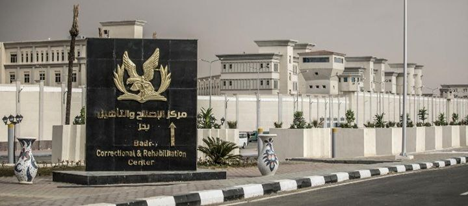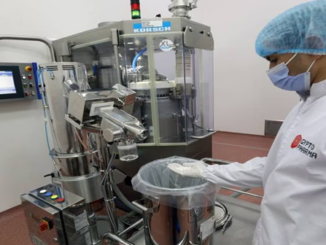
Although Egyptian authorities sometimes release murderers and criminals in the spirit of Eid al-Fitr, many activists, journalists, and other political prisoners remain behind bars.
In addition, many of political detainees are held without trials and exposed to what rights groups consider deliberate human rights abuse.
Since 2013, the government has tightened its grip on the media, ensuring control over the news narrative and social media by censoring information in favor of the regime.
Forced disappearances, raids of news and media offices, and arbitrary arrests have been part of the government’s systematic display of power.
According to Human Rights Watch (HRW), over 60,000 people have been jailed for political reasons in Egypt under Sisi’s presidency. Many are deprived of hearings, family visits, and legal proceedings.
Critics, including human rights organization Amnesty International, also say journalism has been made a crime in Egypt over the past several years.
Marwa Arafa
Marwa Arafa, a translator who has recently marked three years in arbitrary detention, is one of Egypt’s tens of thousands of political prisoners who were forced to spend Eid al-Fitr away from their families again this year.
Three years have passed since translator Marwa Arafa was arrested at her home and separated from her young daughter. She is one of Egypt’s tens of thousands of political prisoners forced to spend Eid al-Fitr away from their families again this year.
Security forces raided Arafa’s apartment late at night in April 2020 without presenting an arrest or search warrant, questioning Arafa while holding her 21-month-old daughter and 19-year-old sister in another room.
They eventually took her away and secretly held her in National Security Agency headquarters for two weeks, with desperate appeals for information from her family members and lawyers going unanswered.
When she finally appeared before the Supreme State Security Prosecution, prosecutors charged her with joining and funding a terrorist group on the basis of her support for families of prisoners, including by providing food, clothing, medication, and study supplies.
“She loves people and doesn’t want anyone to be in need,” her mother told Mada Masr last year. “That’s the reason she is in trouble, for being a generous and helpful person.”
Arafa’s arrest and detention have caused her daughter, now four years old, trauma that her family says has caused developmental and behavioral problems.
A court extended Arafa’s detention earlier this month in Case 570/2020, under which she was first detained three years earlier.
While authorities often resort to case rotation to circumvent the two-year legal maximum of pretrial detention, they are simply disregarding the law in Arafa’s case.
She is thus one of countless Egyptians, including more than 20 journalists, unjustly separated from their families during what is supposed to be among the happiest times of the year.



